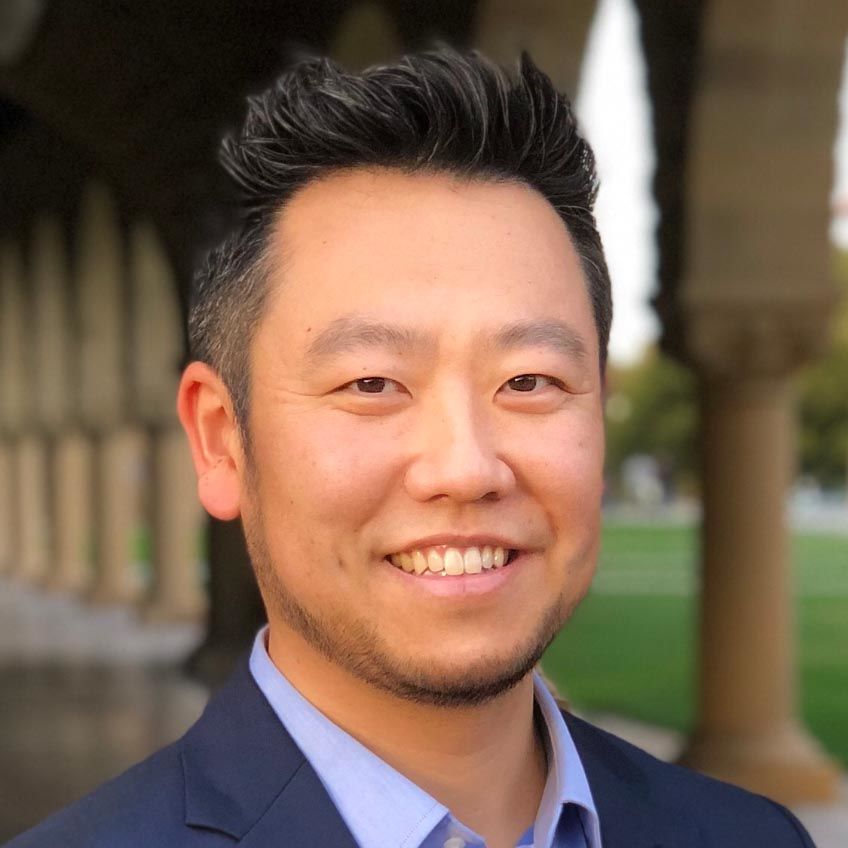Call Now Open
2026 Oxford-Harrington Rare Disease Scholar Award

Ophthalmology, Regenerative
Regenerative Therapy for the Cornea
2022 Harrington Scholar-Innovator
Corneal blindness affects over 12.5 million people worldwide with less than 2% having access to a sight-restoring corneal transplant. A groundbreaking technique using a superglue-like gel is a hopeful cure.
Dr. David Myung and his lab have developed, and successfully tested in animal models, a novel biomaterial for filling and healing corneal defects.
The crosslinked compound, a proprietary blend of crosslinkable collagen and other materials, has the consistency of honey. Applied following surgical removal of scar tissue or used to backfill deep corneal wounds, the gel serves as a regenerative extracellular matrix to support native corneal cells—the epithelium—to grow over the wound, and eventually be replaced entirely by transparent stromal tissue.
“Think of it as ‘biological spackle',” Dr. Myung says. “A very small amount—less than a typical droplet of water—can fill even large defects, forming a solid gel that leaves the cornea the way it's meant to be: smooth and clear.”
“Input from our Harrington advisors is crucial to making sound decisions about manufacturing, sourcing of materials, and FDA-requirements for characterization and testing,” Dr. Myung explains.
“Corneal transplants have been done the same way for a hundred years, by suturing donor corneas into place,” Dr. Myung says. “As effective as the procedure is, there's always a risk of infection and rejection. Meanwhile, there is still a major shortage of graft tissue. We are hoping that our solution, which requires no sutures or graft
tissue, can help address these limitations.”